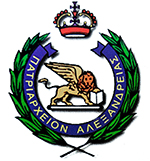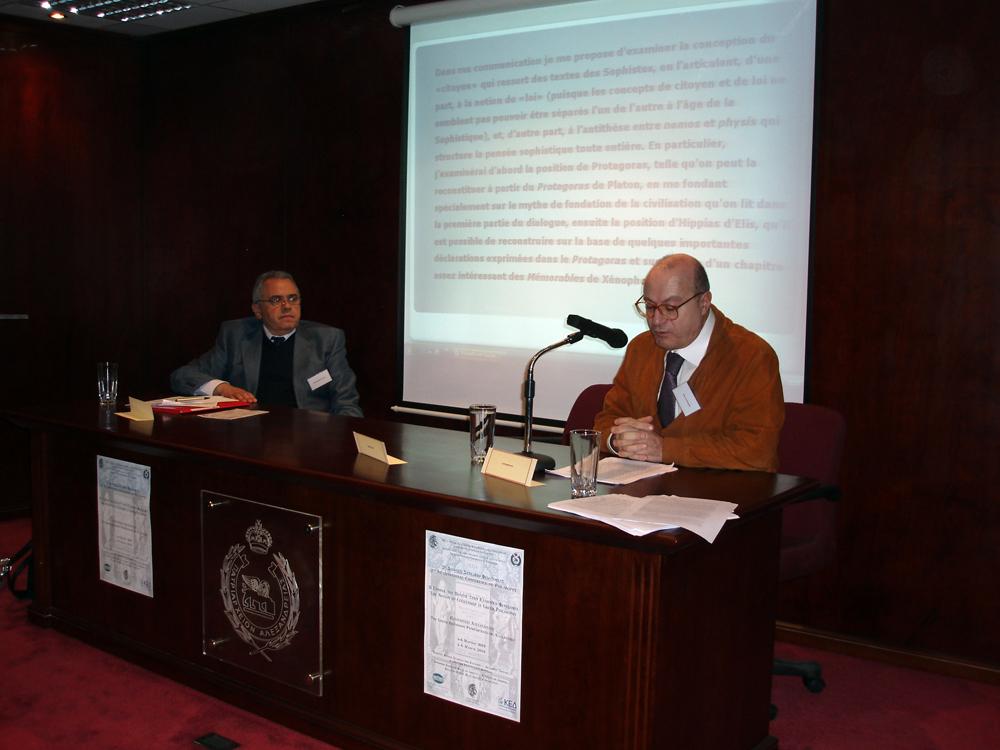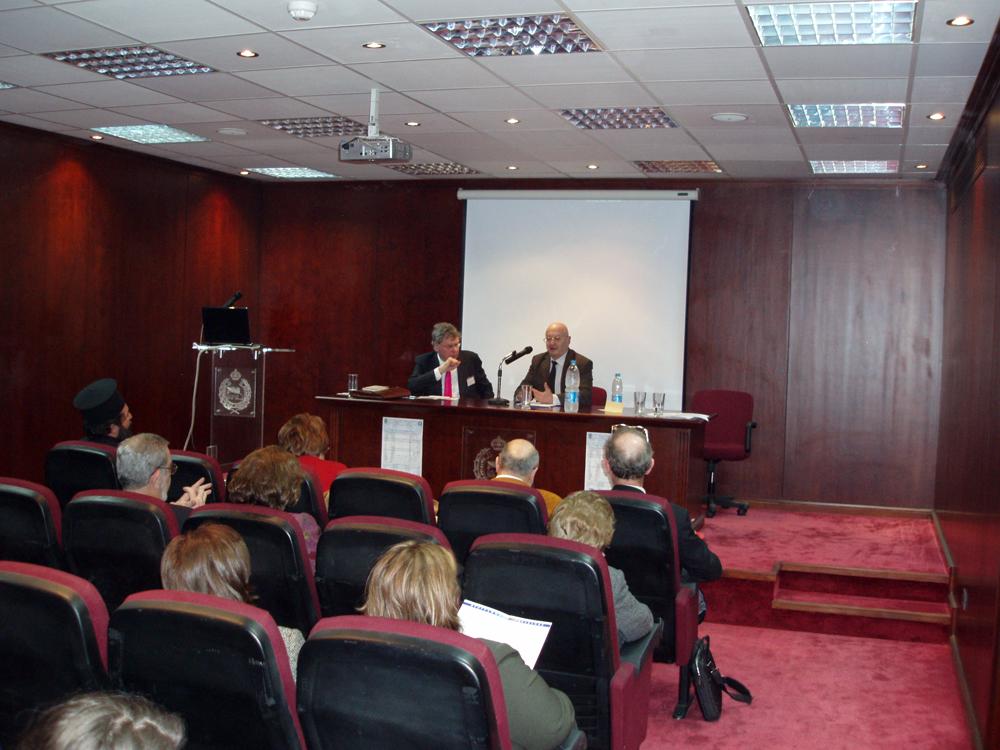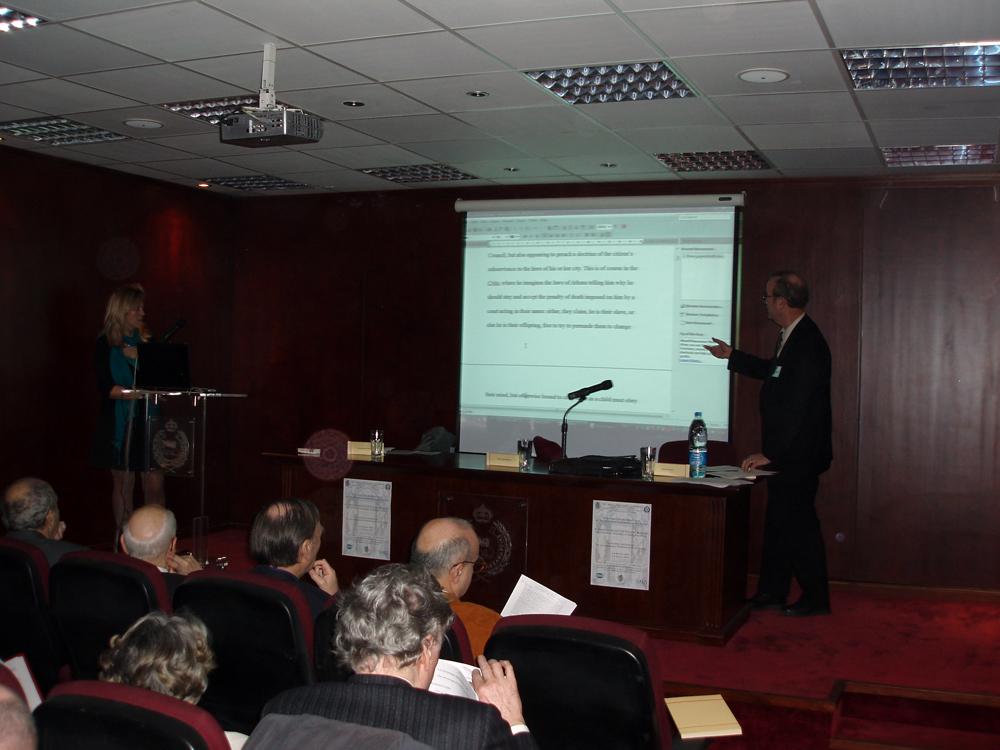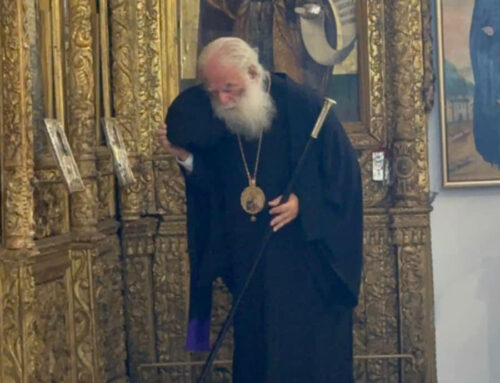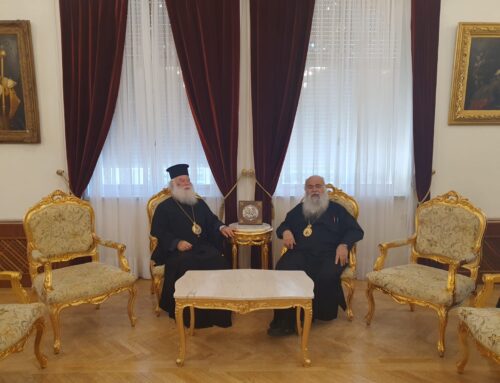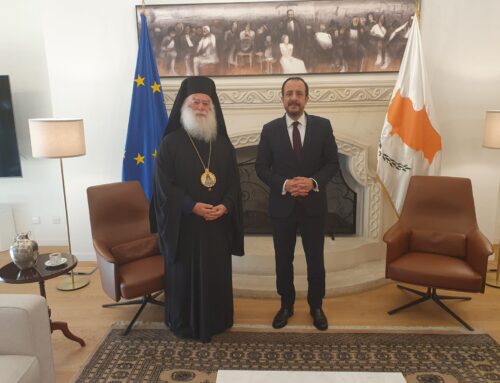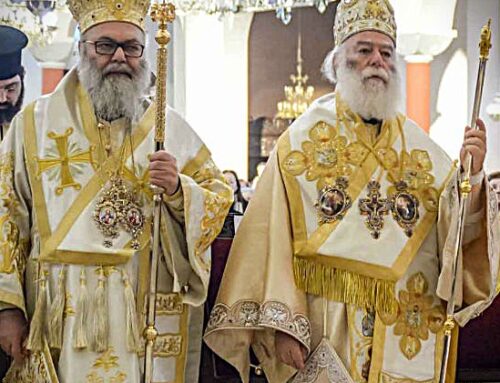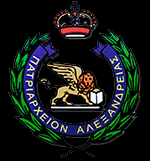The second day of the deliberations of the 2nd Internation Philosophy Conference entitled “The Meaning of Citizen in Hellenic Philosophy”, which is under the auspices of His Beatitude Theodoros II, Pope and Patriarch of Alexandria and All Africa, is organised by the Athens Academy and the Centre for Research of Hellenic Philosophy,began in the meeting hall of the historic Patriarchal Library in Alexandria, with the introduction by Professor Christopher Rowe of Durham University. Centring his talk on the Socratic meaning of citizen as it is impressed in the platonic dialogues, Mr. Rowe approached the Socratic reasoning regarding the role of the citizen. This reasoning does not at all have only one meaning, as it combines on the one hand the obligatory submission of the citizen to the laws of the state as these are described in Kritona, and on the other hand the priority activation of the citizen for the transformation of the state, as outlined in Apologia.
Mr Rowe was followed to the podium by the Professor from the University of Paris IV Sorbonne, Mr. Gilbert Romeyer Dherbey. Having as his starting point the utopian Greek citizen, the speaker went on to a comparative presentation of the tradition citizen of Aristophanes and the emancipated platonic citizen.
During the interval which followed the conference attendees were taken on a conducted tour of the Patriarchal Library and they had the opportunity to marvel the invaluable Patriarchal Collection of Manuscripts and old documents and to see for themselves the tireless efforts of His Beatitude Theodoros II, Pope and Patriarch of Alexandria and All Africa for the preservation, maintenance and promotion of the spiritual treasures of the Patriarchate.
The Chairperson of the first part of the morning meeting, Mrs. Myrto Dragon-Monahou, Professor of the University of Athens, was succeeded for the second part by the Assistant Professor of the University of Athens Mr. Ioannis Kalogerakos. First on the podium was Professor Aldo Brancacci from the Tor Vergata University in Rome, who analysed the meaning of the law and the citizen in Sophism, combining the democratic approach of Protagoras with the aristocratic approach of Ippius of Ilias.
The morning meeting was closed by Professor Gerhard Seel of the University of Berne who approached the Aristotelian view on the practice and distribution of authority. A lunch was then hosted in the Patriarchal Refectory.
The afternoon session under the Chairmanship of Professor Mr. Gilbert Romeyer Dherbey from the University of Paris IV Sorbonne, began with the presentation by the Professor from the Free University of Brussels, Mrs Michele Broze, who centred the interest of the assembly on the role played by the journey of Plato to Egypt and his ensuing contact with the Egyptian political scene in the transformation of the ideal state.
Philon of Alexandria was mentioned by the Member of the Royal Academy of Belgium Mr. Baudouin Decharneux, who demonstrated the dynamic of mixing elements of Hellenic and Hebrew philosophy by the Alexandrian philosopher, as a basic agent of transformation of a political philosophy with an autocratic character.
The second day of deliberation was closed by the Member of the Royal Academy of Belgium and Professor of the Free University of Brussels, Mr. Lambros Kouloumbaritsis, who analysed the political philosophy of the Emperor Julian. He also presented, on the one hand, the manner in which this philosophy was adapted steadily into Christian life by St Ambrose, St Augustine and Pseudo-Dionysios the Aeropagite, and on the other hand the manner in which it influenced Christianity.


